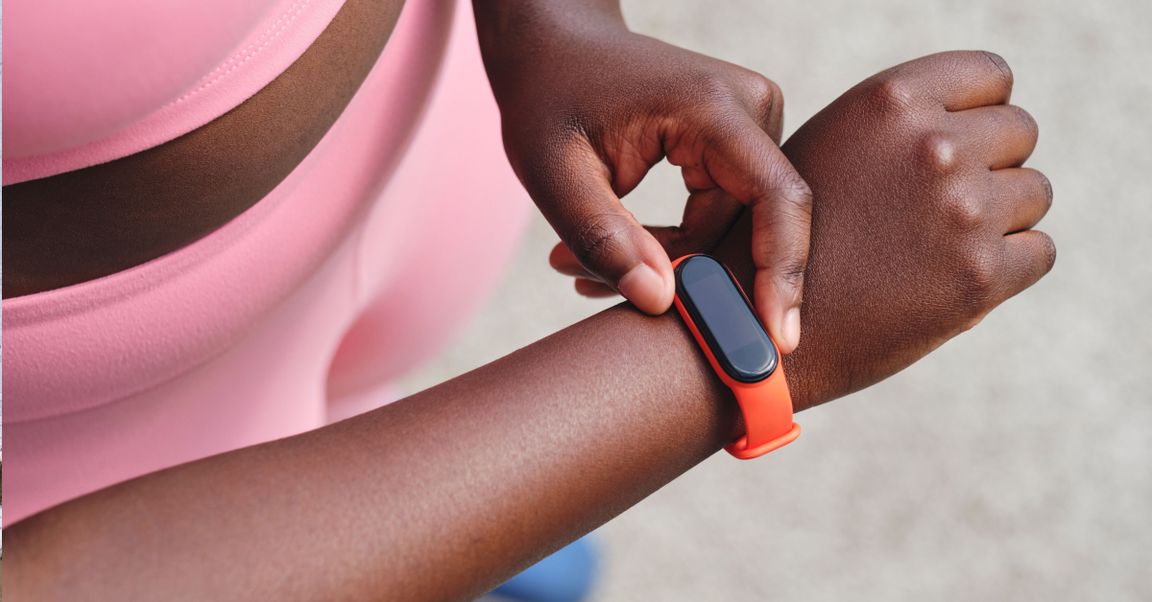The heart-healthy tips everyone should be following
Your heart works hard for you — show it some love with these 7 everyday habits.

“Protect my heart” might not top your daily to-do list, but it should be. Heart disease is the number one cause of death in the U.S. and heart attacks happen about every 40 seconds. And because heart issues like high blood pressure can have no obvious signs, prevention is crucial. “Waiting until you have symptoms to worry about heart disease may be too late,” says Dr. Erin Michos, M.D., associate director of preventive cardiology at Johns Hopkins School of Medicine.
Now for the good news: Making changes to your everyday habits can help prevent or delay the onset of cardiovascular disease. Even those with a strong family history of heart disease can potentially cut their risk almost in half by following a healthy lifestyle, compared to those who don’t. But what habits can have an impact? Start with these seven.
Schedule your workouts
“Exercise is the single best prescription I can give patients,” says Michos. “It manages blood pressure, cholesterol, and blood sugar.” But knowing physical activity is important and actually doing it are two very different things. That’s where scheduling comes in. Grab your paper planner, Google calendar, or whatever and block out at least 30 minutes, five days a week to be active. And know you won’t need to do this forever (unless you want to!). “Once exercise becomes a habit, you’ll be more likely to stick with it,” says Michos.
Have a standing appointment
Sitting for too long can increase your mortality risk from cardiovascular disease, which is why Michos tells patients her 20-8-2 rule (after every 20 minutes of sitting, stand for 8 minutes and move for 2). But it’s super easy to get caught up in responding to emails and Slacks and completely forget about moving your body. An activity tracker or your phone can come in handy here. Both can be set to buzz every so often and remind you to get out of your chair and on to your feet.
Fill half your plate with fruits and vegetables
Nearly half of all deaths related to cardiometabolic health (which includes heart disease, stroke, and type 2 diabetes) are linked to poor dietary choices, but the concept of “eating better” can be super vague. That’s why it’s nice to have little rules to follow. And this one — to cover half your plate with produce — is pretty simple to do. Eating this way helps you get plenty of antioxidants and fiber, which can help reduce cardiovascular disease risk, says Michos. The rest of your heart-healthy plate should include whole grains and lean protein, such as skinless poultry, fish, and beans.
Pair up with a fitness buddy
This actually has two benefits: First, the accountability of knowing that someone is counting on you will help keep you active. And second, being social with a friend can reduce stress. This is key because excess stress can raise your heart rate and blood pressure, says Michos.
Cut out soda
Too much added sugar can up your risk of cardiovascular disease (it’s also connected to other health issues like diabetes and high cholesterol). And sweetened drinks like regular soda, which has about 10 teaspoons of sugar per can, are the top sources of added sugar in the American diet. For those who can’t handle drinking plain water, you’re in luck: There have never been more flavored sparkling water options with no added sugar to choose from.
Avoid smoking — and smokers
At this point everyone knows that smoking is bad for your health — it’s responsible for one out of every four deaths from cardiovascular disease. But it’s not just your own smoking you need to think about, it’s other people’s as well. Secondhand smoke, which is when you breathe in smoke from someone else’s cigarette, can raise your risk of stroke and heart attack.
Eat more homemade foods
Excessive sodium can raise your blood pressure, which can damage your blood vessels over time and is linked to other heart issues, like blocked arteries. And about 70% percent of the sodium we eat comes from packaged, prepared, and restaurant food. So one of the easiest ways to reduce your sodium intake is to begin making more of your own food. Need some simple recipes to try? Weight Watchers members have access to more than 12,000 through the app.
The bottom line
Small habits, done daily, can add up to big benefits for your heart. To be more active, try scheduling your workouts, finding a fitness buddy, and setting alarms on your phone to remind you to get up throughout the day. Other tips to try: fill half your plate with produce at every meal, avoid smoking and secondhand smoke, don’t drink soda, and cook more of your own food to bring down sodium levels. You don’t need to be perfect, but the more often you can stick with these behaviors, the better off your heart will be.